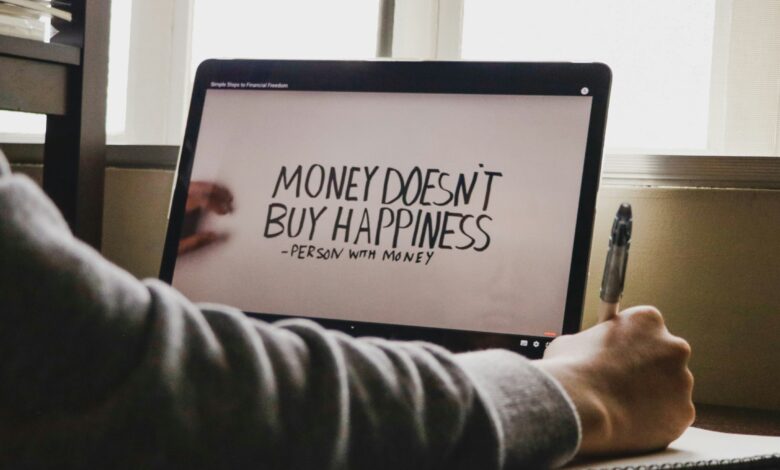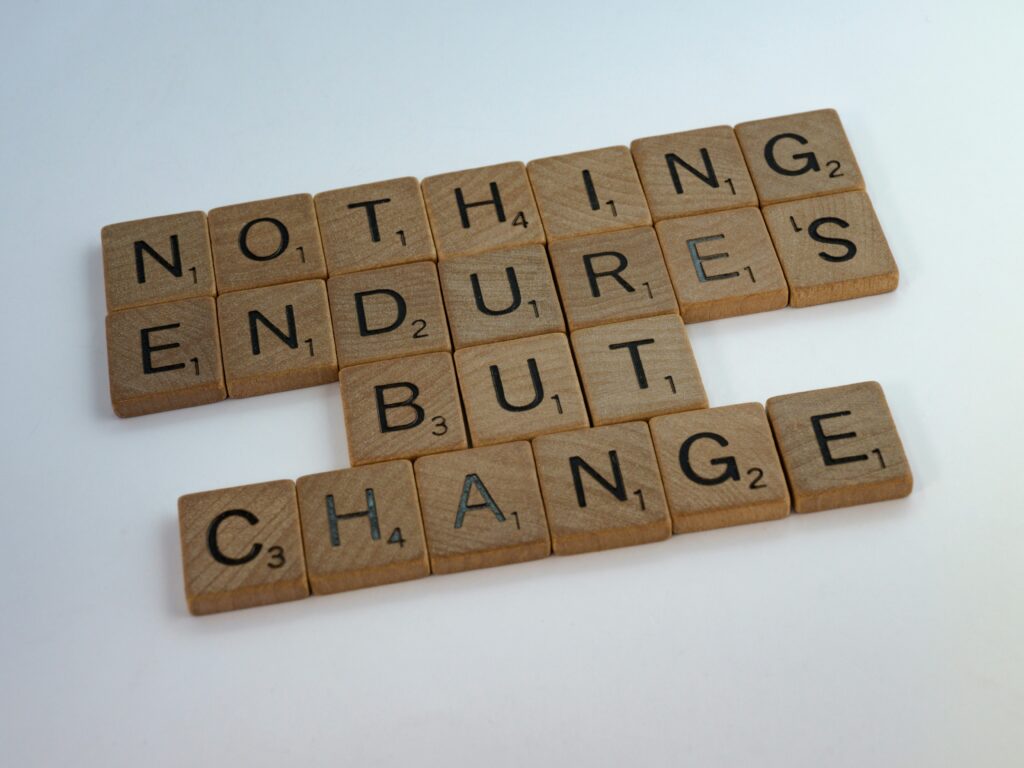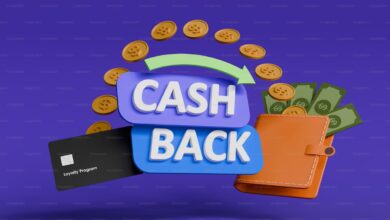How To Do A No Spend Weekend Challenge To Save Money

Look, I’m going to be straight with you your bank account is probably crying every Monday morning after the weekend spending spree. Coffee shops, brunch dates, impulse Target runs, that random online shopping at 2 AM…
Yeah, I’ve been there too. But here’s the thing: you don’t need to spend money to have an amazing weekend. Wild concept, right? I remember the first time someone suggested a no spend weekend to me. My initial reaction was basically “So… I just sit at home and stare at the wall?”
Spoiler alert: that’s not what it’s about at all. A no spend weekend challenge is literally what it sounds like you commit to not spending any money for an entire weekend. No shopping, no dining out, no “just one drink” that turns into a $60 bar tab.
After doing this challenge dozens of times (yes, I’m a reformed weekend spender), I can tell you it’s one of the most effective ways to reset your spending habits and pad your savings account. Plus, you’ll be shocked at how creative you become when your wallet’s off-limits.
What Is A No Spend Weekend Challenge?
Let me break this down super simple. A no spend weekend means exactly what you think from Friday night through Sunday night, you don’t spend a single dollar. Zero. Nada. Nothing.
Now, before you panic, there are some common-sense exceptions. We’re talking about planned, necessary expenses like:
- Prescription medications you need to pick up
- Emergency situations (actual emergencies, not “I need new shoes” emergencies)
- Pre-paid bills that are automatically deducted
Everything else? Off the table. No takeout, no grabbing coffee, no “quick trip” to the store, no online shopping, and definitely no impulse buys.
The beauty of this challenge is its simplicity. You’re not tracking every penny or calculating percentages. You’re just… not spending. It’s black and white, which makes it surprisingly easy to stick to once you commit.
Why Only A Weekend?
Good question! Weekends are actually when most people blow their budget without realizing it. Think about it you’ve got free time, you’re relaxed, you want to treat yourself after a long week. That’s exactly when those “little” purchases add up.
According to behavioral finance research, we spend up to 50% more on weekends compared to weekdays. That’s because we tie leisure time to spending money. The no spend weekend challenge breaks that mental connection.
Starting with just a weekend makes this challenge doable. You’re not committing to a month or even a week. It’s 48-72 hours. Anyone can do that, right?
Why You Should Try A No Spend Weekend
Okay, so why bother? What’s the actual point besides the obvious “you’ll save money” thing?
You’ll Save More Than You Think
Let’s do some quick math. Say you typically spend $150 on a weekend $40 on dining out, $30 at the coffee shop, $50 on random shopping, $30 on entertainment. That’s normal for a lot of people. Do one no spend weekend per month, and you’ve saved $1,800 per year. Just from one weekend a month.
That’s a nice vacation fund. Or an emergency fund. Or paying off a chunk of debt. FYI, that number gets even bigger if you do it twice a month.
It Reveals Your Spending Triggers
Here’s what nobody tells you: a no spend weekend is like holding up a mirror to your spending habits. You’ll notice exactly when you want to spend and why. Bored? You want to shop. Stressed? You want takeout. Happy? You want to celebrate by spending.
I discovered I was dropping $40-50 every Saturday just because I was bored and equated “fun” with “buying stuff.” That realization alone changed my entire relationship with money.
You’ll Get More Creative
When you can’t spend your way into entertainment, you get resourceful real quick. You’ll rediscover hobbies you forgot about, explore free activities in your area, and actually use all that stuff you already own.
I’m talking about that book collection gathering dust, the art supplies you bought with grand plans, the board games still in shrink wrap, or the streaming subscriptions you’re already paying for but never use.
It Builds Financial Discipline
Think of this as a workout for your willpower. Every no spend weekend strengthens your ability to say no to impulse purchases. It’s like going to the gym for your wallet 🙂
The discipline you build during these weekends starts spilling into your weekdays too. You’ll find yourself thinking twice before making purchases because you’ve proven to yourself that you don’t need to spend money to be happy.

15 Ways On How To Prepare For Your No Spend Weekend Challenge
Alright, let’s get practical. You can’t just wake up Saturday morning and declare it a no spend weekend trust me, that’s a recipe for failure. You need a bit of prep work.
1. Plan Your Weekend Schedule
The biggest mistake people make. Having zero plans. An empty schedule is an invitation to spend money out of boredom.
Block out your time for the entire weekend. What will you do Saturday morning? Afternoon? Evening? Sunday? Having a loose structure keeps you engaged and less tempted to hit the mall or browse online stores.
Some ideas to schedule:
- Morning workout or yoga session
- Meal prep time
- Movie marathon with films you already own or on your streaming service
- Cleaning and organizing projects
- Creative hobbies or learning something new
- Quality time with family or friends (free activities only)
2. Stock Up On Food And Essentials
This part is crucial. Do your grocery shopping and fill your gas tank before your no spend weekend starts. You cannot and should not skip eating just because you’re not spending money.
Hit the grocery store on Thursday or Friday morning. Buy everything you’ll need for the weekend. Breakfast foods, lunch ingredients, dinner items, snacks, coffee, whatever. Think of it as strategic pre-spending.
Also, fill up your car’s gas tank. Nothing derails a no spend weekend faster than needing to drive somewhere and realizing you’re running on fumes.
3. Tell Someone About Your Challenge
Accountability matters. Tell a friend, your partner, your roommate, or post it on social media. When other people know what you’re doing, you’re way less likely to bail.
Better yet? Invite someone to join you. Having a no spend buddy makes this challenge more fun and keeps you both honest. You can text each other when you’re tempted to spend and cheer each other on.
4. Move Money Into Savings
Here’s a pro move: on Friday, transfer the amount you’d typically spend on a weekend into your savings account. If you usually drop $100-150 on weekends, move that money immediately.
Why? Two reasons. First, you won’t be tempted to spend it if it’s not in your checking account. Second, you get the instant gratification of seeing your savings grow before the weekend even starts. It’s motivating.
5. Prepare For Temptation
Be honest with yourself about your weak spots. Do you always grab Starbucks on Saturday mornings? Brew your coffee at home and make it special—use your nice mug, add flavored creamer, whatever makes it feel like a treat.
Do you love browsing stores? Delete shopping apps from your phone for the weekend. Unsubscribe from promotional emails. Make it harder for temptation to reach you.
What You Can (And Can’t) Do During Your No Spend Weekend
Let’s clear up the confusion right now. A no spend weekend doesn’t mean you’re under house arrest.
What You CAN’T Do:
- No shopping (online or in-store, not even window shopping if you have no self-control)
- No dining out (restaurants, fast food, coffee shops, bars—none of it)
- No ordering delivery (this includes food delivery, Amazon orders, everything)
- No entertainment that costs money (movie theaters, concerts, paid events)
- No convenience store runs (not even for gum or a lottery ticket)
- No vending machines (yes, even that dollar counts)
- No paying for parking (plan ahead to avoid this)
- No buying gas (filled up beforehand, remember?)
What You CAN Do:
- Use things you’ve already paid for (streaming services, gym memberships, groceries at home)
- Enjoy free activities (parks, hiking trails, beaches, free museums, library visits)
- Cook meals at home (get creative with ingredients you already have)
- Host friends at your place (potluck style where everyone brings food from home)
- Work out (home workouts, running outside, YouTube fitness videos)
- Pursue hobbies (reading, writing, drawing, crafting, gaming—using what you own)
- Clean and organize (might not sound fun, but it’s actually satisfying and productive)
- Learn something new (free online courses, YouTube tutorials, practice a skill)
See? You’ve got options. Plenty of them.
The Gray Areas
Okay, let’s address some situations that come up:
What if someone invites you out? Be upfront. Say “I’m doing a no spend challenge this weekend, but I’d love to hang out. Want to come over instead?” or suggest a free alternative like hiking or a picnic.
What about emergencies? Real emergencies always override the challenge. If your kid needs medicine or your car breaks down, obviously take care of it. But be honest with yourself about what’s actually an emergency.
Can you use gift cards? IMO, no. The spirit of the challenge is experiencing a weekend without spending even using a gift card breaks that mindset. Save them for next weekend.
Free Activities To Keep You Entertained
This is where it gets fun. You’d be amazed at how much free entertainment exists once you start looking for it.
1. At Home Entertainment
Your home is already an entertainment goldmine if you know where to look:
- Movie or series marathon using Netflix, Hulu, Disney+, or whatever streaming service you already pay for
- Game night with board games, card games, or video games you own
- Cook a fancy meal using ingredients you have (make it an experience, not just dinner)
- Home spa day with DIY face masks, bubble baths, painting nails
- Rearrange your furniture for a fresh look without spending a dime
- Start that book you’ve been meaning to read
- Try a new recipe or bake something from scratch
- Have a photo shoot at home for fun or to update your social media
- Learn something new on YouTube (a language, instrument, skill)
- Declutter and sell stuff online (bonus: this makes you money!)
2. Outdoor Activities
Get outside and enjoy what nature offers for free:
- Go for a hike on local trails
- Visit a park for a picnic, frisbee, or just relaxing
- Bike ride around your neighborhood or a nearby trail
- Beach day if you’re near one (bring your own snacks and drinks)
- Explore your city on foot and see neighborhoods you’ve never visited
- Photography walk capturing interesting shots with your phone
- Outdoor workout at a park or on a track
- Stargaze at night (bonus points for bringing a blanket and snacks from home)
- Bird watching sounds nerdy but is actually pretty cool
- Free outdoor concerts or events (check your local community calendar)
3. Social Activities That Cost Nothing
You can still be social without spending money:
- Host a potluck where everyone brings something from home
- Game night with friends at someone’s house
- Walk and talk instead of coffee dates
- Free community events (farmers markets, festivals, concerts in the park)
- Visit friends or family for quality time
- Start a book club where you exchange books you already own
- Organize a clothing swap with friends
- Volunteer together for a cause you care about
- Have a bonfire in someone’s backyard (if allowed in your area)
4. Learning And Personal Growth
Use this time to invest in yourself:
- Free online courses on platforms like Coursera, edX, or Khan Academy
- YouTube tutorials for literally anything you want to learn
- Library resources including books, audiobooks, magazines, and sometimes free classes
- Podcast binge on topics you’re interested in
- Meditation and mindfulness practice using free apps like Insight Timer
- Journal about your goals, feelings, or ideas
- Plan your financial goals and create a realistic budget
How To Handle Challenges And Temptations
Let’s be real this won’t be easy, especially your first time. You’ll face temptations. Here’s how to deal with them.
1. When You’re Bored
Boredom is the number one spending trigger. Your brain associates spending money with relieving boredom. Break that connection.
Keep a running list of things to do when boredom hits. Pull it out the second you feel that “I’m bored, let me shop online” feeling creeping in. Physical activity works wonders—go for a walk, do jumping jacks, anything to shift your energy.
The boredom usually passes in 15-20 minutes if you can distract yourself. Push through it.
2. When Friends Want To Go Out
This is tricky. You don’t want to miss out on social time, but you also don’t want to break your challenge.
Be proactive. Text your friends early in the weekend and say “Hey, I’m doing a no spend challenge this weekend. Want to do something free? I’m thinking hike/movie at my place/park hangout.” Take the lead in planning free activities.
If they still want to go out, be honest. Real friends will understand and either adjust plans or reschedule.
3. When You Experience FOMO (fear of missing out)
Fear of missing out is real, especially if you see others on social media having expensive-looking fun. Remember: they’re probably showing the highlights and hiding the credit card debt.
Flip your perspective. You’re not missing out you’re gaining control of your finances. You’re building wealth while they’re building debt. That’s something to feel good about.
Also, get off social media for the weekend if it’s triggering spending urges. Seriously, just delete the apps for 48 hours.
4. When You Justify “Just This Once”
Your brain will try to negotiate. “It’s just $5.” “This is a special circumstance.” “I’ll start the challenge next weekend instead.”
Nope. The whole point is proving to yourself you can do this. Every excuse you make weakens your financial discipline. Stand firm.
Write down your reason for doing this challenge. Look at it when you’re tempted. “I’m doing this to save for [goal]” or “I’m proving I don’t need to spend money to be happy.”
5. When Emergencies Actually Happen
Real emergencies override everything. If you need to spend money for a genuine emergency medical issue, car breaks down, urgent household repair, Do it.
But here’s the key: be brutally honest with yourself. Is this actually an emergency, or are you inventing one to justify breaking the challenge? If you have to think hard about whether it’s an emergency, it probably isn’t.
Tracking Your Success And Learning From The Experience
Once your no spend weekend wraps up, don’t just move on. Take time to reflect and learn from the experience.
1. Calculate Your Savings
Pull up your bank statements and look at the previous few weekends. What did you typically spend? Add it up. That’s how much you saved this weekend.
Transfer that exact amount into savings immediately. Make your savings visible and real. This reinforces the positive behavior and makes you more likely to do it again.
For example, if you usually spend $120 on weekends and you spent $0, move $120 to savings right now. Watching that savings account grow is incredibly motivating.
2. Journal About The Experience
Grab a notebook or open a note app and write down:
- What was hardest about the challenge?
- What surprised you?
- What spending urges did you notice?
- What free activities did you enjoy most?
- What would you do differently next time?
This reflection is gold. It reveals your spending patterns and helps you plan better for next time. I keep a no spend journal and review it before each challenge it helped me avoid repeating mistakes.
3. Identify Your Spending Triggers
This is where the real financial education happens. During the weekend, you probably noticed specific moments when you wanted to spend money. What triggered those urges?
Common triggers include:
- Emotional states (stressed, bored, sad, excited)
- Social situations (friends going out, feeling left out)
- Habits (Saturday morning coffee run, Sunday brunch tradition)
- Marketing (emails, ads, social media posts)
- Time of day (evening online browsing, lunch time takeout cravings)
Understanding your triggers gives you power over them. You can’t change what you don’t acknowledge.
4. Plan Your Next Challenge
One no spend weekend is great. Regular no spend weekends? Life-changing.
Schedule your next one right now. Put it on your calendar. Commit to it. Many people aim for one no spend weekend per month, but you could do more.
Some folks do one no spend weekend per paycheck period. Others commit to the first weekend of every month. Find a rhythm that works for you and stick with it.
5. Share Your Results
Remember that accountability buddy? Tell them how it went. Share your wins, your struggles, your savings total. Celebrating your success makes you more likely to continue.
Post about it on social media if you’re comfortable. You might inspire others to try it, and you’ll have public accountability for your next challenge.
Common Mistakes To Avoid
Learn from my mistakes so you don’t have to make them yourself.
Not Planning Ahead
This is the biggest mistake I see. People decide Friday night to do a no spend weekend, but they haven’t gone grocery shopping, their fridge is empty, and by Saturday noon they’re hangry and ordering pizza.
Plan at least 3-4 days in advance. Get groceries, fill your car with gas, and schedule your activities beforehand. Success requires preparation.
Being Too Restrictive
Some people take this to extremes refusing to use electricity, not eating properly, or making themselves miserable. That’s not the point.
You already pay for utilities, streaming services, gym memberships, and groceries. Use them. This challenge is about not spending additional money, not punishing yourself.
Not Having A Plan B
Weather changes, friends cancel, you finish all your planned activities by Saturday afternoon… then what? You need backup plans.
Keep a running list of free activities you can do anytime. Have movies queued up, books ready, hobbies accessible. When plan A falls through, immediately move to plan B.
Comparing Yourself To Others
Everyone’s financial situation is different. Don’t compare your no spend weekend to someone else’s or feel bad if others can do longer challenges.
Start where you are. If a full weekend feels overwhelming, start with one no-spend day. Build up from there. Progress is progress, regardless of pace.
Giving Up After One Slip-Up
You accidentally spent $3 on a vending machine because you forgot about the challenge for a second. Don’t let that derail the entire weekend.
Acknowledge it, learn from it, and keep going. The goal is progress, not perfection. A weekend where you spent $3 instead of $150 is still a huge win.
Forgetting The Bigger Picture
This isn’t just about saving money one weekend. It’s about changing your relationship with spending, building discipline, and proving to yourself that happiness doesn’t require constant purchasing.
Keep that bigger picture in mind, especially when the challenge feels tough.
Making No Spend Weekends A Regular Habit
Here’s where the real magic happens turning this one-time challenge into a regular practice.
Start Small And Build Up
Don’t commit to no spend weekends every single weekend forever. That’s overwhelming and unsustainable for most people.
Start with one per month. Master that. Then maybe increase to two per month. Find your sustainable rhythm. I do two no spend weekends monthly and it’s perfect for my lifestyle.
Create A System
Make this automatic by picking a specific weekend each month. First weekend? Last weekend? Weekend after payday? Having a predictable schedule removes the decision fatigue.
Set a recurring reminder on your phone. Block it on your calendar. Treat it like any other important appointment.
Track Your Annual Savings
Keep a running total of how much you’re saving with these challenges. Use a simple spreadsheet or a note on your phone.
Seeing those numbers grow is incredibly motivating. When you hit $1,000 saved from no spend weekends, celebrate! When you reach $2,000, celebrate bigger! These milestones keep you committed.
Adjust Based On Life Changes
Your no spend weekends will look different depending on what’s happening in your life. Single versus married, no kids versus young children, different seasons, different locations it all matters.
Be flexible. Adjust the challenge to fit your current situation while maintaining the core principle of not spending money.
Involve Your Family
If you have a partner or kids, make this a family challenge. It teaches children financial responsibility and brings everyone together for creative, free activities.
Make it fun. Turn it into a game with rewards (non-monetary ones, obviously). Create family traditions around your no spend weekends.
The Long-Term Financial Impact
Let’s talk about what happens when you stick with this beyond just one weekend.
Compound Savings Effect
Here’s the thing about behavioral change it compounds. You don’t just save money during the no spend weekend itself. The discipline you build starts affecting your weekday spending too.
Many people report that after doing regular no spend weekends for a few months, their overall monthly spending drops by 20-30%. You become more mindful about all purchases, not just weekend ones.
That’s the real payoff. If you spend $3,000 monthly and reduce that by 25%, you’re saving $9,000 per year. That’s life-changing money for most people.
Breaking The Consumption Cycle
We live in a culture that equates spending with happiness, success, and self-care. Every problem has a product solution marketed to us. Stressed? Buy this. Bored? Buy that. Celebrating? You guessed it buy something.
No spend weekends break that programming. You prove to yourself, repeatedly, that you can be happy, entertained, and fulfilled without opening your wallet. That’s powerful stuff.
Building Real Wealth
Let’s get into the actual numbers because they’re motivating as heck.
Assume you do two no spend weekends per month and save $150 per weekend. That’s $300 monthly or $3,600 annually. If you invest that money in a basic index fund averaging 8% returns, here’s what happens:
- After 5 years: $21,634
- After 10 years: $54,884
- After 20 years: $176,949
- After 30 years: $448,024
Yeah, you read that right. No spend weekends could literally build you almost half a million dollars over a working career. And that’s just from two weekends per month.
Changing Your Money Mindset
This is the real transformation. You start asking better questions about every purchase: “Do I need this?” “Will this actually make me happy?” “Is this worth delaying my financial goals?”
You stop being a passive consumer and become an active decision-maker with your money. That mindset shift is worth more than any savings total.

Final Thoughts
No spend weekends aren’t always easy, and it’s normal to miss some of your usual treats. But you’ll soon see that the things bringing real joy time with loved ones, hobbies, self-care, and nature don’t cost much at all.
This challenge isn’t about restriction; it’s about freedom. Freedom from spending pressure and from living paycheck to paycheck.
Start with one weekend. Notice how it feels, what you learn, and how your savings grow. You might be surprised by the peace, clarity, and control it brings and want to do it again.
Now stop reading and go schedule your first no spend weekend. Future you will thank you 🙂








